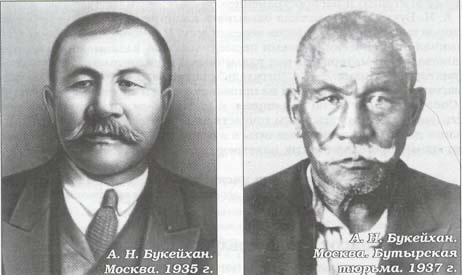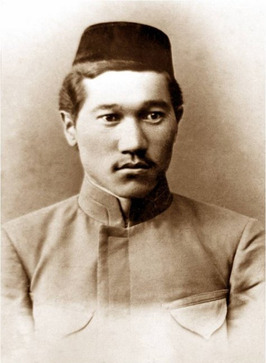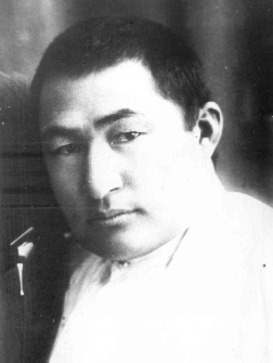Normal Couple

Normal couple
Obsessed with this photo of Assad and Eric asdfghhjkll

More Posts from Alenseress and Others

angst timeee
Life will be full of heartbreaks but not a single one of them will hit as hard as the boy who buys you a popsicle on a train station in 2005

hey sorry are you an anti?? just because i'll have to unfollow :// yall make a lil bit uncomfortable, sorry
Listen in absolutely /nm tone I still don't fully understand the criteria for the anti-pro thing and I don't really want to. Fictional dead dove out of my comfort is dead dove for a reason, I do not touch it, look it up or engage with it in any way. Whatever stuff people want to do in their bubble, not my business at all unless they get unnecessarily mean
Only thing that I do not stomach in any way is sexual content with kids. Fictional pedophilia is still pedophilia to me and if anyone following me is engaging with that type of content please just block me yourself, I point it out every other month, I'm really not tolerant about it
Other than that, idk, I might block you if I see your content and it makes me uncomfortable to curate my space but I don't really care enough for much else/gen


When you wake up next to him in the middle of the night
With your head in your hands, you're nothing more than his wife
And when you think about me, all of those years ago...

...You know I hate to say, but I told you so

Both are very confused and (apparently) bisexual
Today is May 31, remembrance day for victims of repressions and acarcılıq, the famines of 1920-1921 and 1931-1933. The former saw a million Qazaqs perish, and the latter between 1.3 to 1.5 million. By 1939, Qazaqs had lost more than a quarter of their population in a decade.

Moreover, Qazaqstan had lost most of its intelligentsia due to political repressions. A short list under the link.
• Äliyhan Bökeyhan (1866-1937) — leader of the Alac Party and editor of the Qazaq newspaper, which ran from 1913 until 1918. He stood for an independent and democratic Qazaq state. In 1917, he was elected president of the newly-formed Alac Autonomy, but the republic was crushed in 1920 by the Bolsheviks. In 1937 he was arrested and executed in Moscow.

Bökeyhan in 1935 and 1937.
• Ahmet Baytursınulı (1872-1937) — linguist and author of the reformed Arabic alphabet called töte jazıw, which adapted the writing system to be more accessible and accounting for the Qazaq language's unique features. He is also responsible for coining new terms for Qazaq grammar and literature. In 1937 he was accused of being an "enemy of the people" and was shot by a firing squad.

A. Baytursınulı in 1913.
Mirjaqıp Dulatulı (1885-1935) — poet and writer, author of the poem Oyan, Qazaq! (Wake up, Qazaq!) and the first Qazaq novel Baqıtsız Jamal (Unhappy Jamal), which brings to light the sad fate of women in patriarchal Qazaq society. The lines of Oyan, Qazaq! go thus:
Open your eyes; wake up, Qazaq; raise your head,
Don't waste your years in the darkness.
When the land is lost, faith corrupted, and the situation's getting worse,
My dear, there's no time to rest.
Oyan, Qazaq! has become a slogan for a free Qazaqstan in modern times.

M. Dulatulı in 1916.
In 1928 he was accused of "Qazaq nationalism" and was arrested. He spent two years in Butyrka prison, then was transferred to Solovki prison camp. He died in Sosnovka in 1935.
Turar Rısqulov (1894-1938) — chairman of the Central Electoral Committee of the Turkestan ASSR, founder of the "Bukhara" society, and participant in the 1916 Central Asian revolt. He supported the agency of indigenous Turkic peoples, viewing revolution along national lines as a fight against colonial exploitation and settler violence. He was charged with Pan-Turkism and was executed in 1938.

Portrait of T. Rısqulov.
İliyas Jansügirov (1894-1938) — poet, writer, and translator. He's the author of the famous poem Qulager about the death of Aqın-Seri's beloved horse; he also translated countless works of Pushkin, Gorky, Mayakovsky, Hugo, Heine, and other foreign classics. He was executed without trial in 1938.

İ. Jansügirov, presumably in the 1920s.
There were many more bright people who were imprisoned and executed by the Soviet regime, such as writers Mağjan Jumabay, Säken Seyfullin, Beyimbet Maylin; doctor Sanjar Asfendiyarov, linguists Qudaybergen Jubanov, Teljan Conanov, Näzir Törequlov.
The forced settlement of nomads led to Qazaqs being ripped away from their traditional life and culture, the mass repressions of the intelligentsia silenced people's voices. This day is as important as ever in light of the situation in Qazaqstan, where the government still imprisons journalists and activists; where the 200+ people killed during Bloody January and their families still haven't seen justice; and where, in the world, Russia denies Qazaqstan's history and territorial integrity, and still dreams of rebuilding the Russian Empire.
-
 blemper liked this · 1 month ago
blemper liked this · 1 month ago -
 azbukaplohogovkusa liked this · 3 months ago
azbukaplohogovkusa liked this · 3 months ago -
 cheesewhimsy liked this · 3 months ago
cheesewhimsy liked this · 3 months ago -
 teaspoonofdumdumduum reblogged this · 3 months ago
teaspoonofdumdumduum reblogged this · 3 months ago -
 teaspoonofdumdumduum liked this · 3 months ago
teaspoonofdumdumduum liked this · 3 months ago -
 vampyrr-luvrr liked this · 3 months ago
vampyrr-luvrr liked this · 3 months ago -
 fluffyfurbies liked this · 3 months ago
fluffyfurbies liked this · 3 months ago -
 beethemostyou liked this · 3 months ago
beethemostyou liked this · 3 months ago -
 lcvedbydeath liked this · 3 months ago
lcvedbydeath liked this · 3 months ago -
 marysyp96 reblogged this · 3 months ago
marysyp96 reblogged this · 3 months ago -
 raven-undergrove liked this · 3 months ago
raven-undergrove liked this · 3 months ago -
 the-vampire-library liked this · 3 months ago
the-vampire-library liked this · 3 months ago -
 ahhhhhhh-iwtv-sideblog reblogged this · 3 months ago
ahhhhhhh-iwtv-sideblog reblogged this · 3 months ago -
 mcdoogledork liked this · 3 months ago
mcdoogledork liked this · 3 months ago -
 brigdh liked this · 5 months ago
brigdh liked this · 5 months ago -
 lurkerdelima liked this · 5 months ago
lurkerdelima liked this · 5 months ago -
 uncommonsockeater reblogged this · 5 months ago
uncommonsockeater reblogged this · 5 months ago -
 blood-and-guts-and-spiderman liked this · 6 months ago
blood-and-guts-and-spiderman liked this · 6 months ago -
 softlavendercow liked this · 6 months ago
softlavendercow liked this · 6 months ago -
 fantasizzle liked this · 6 months ago
fantasizzle liked this · 6 months ago -
 shark-from-the-park liked this · 6 months ago
shark-from-the-park liked this · 6 months ago -
 reaper-of-light-12 liked this · 6 months ago
reaper-of-light-12 liked this · 6 months ago -
 pothenalover liked this · 6 months ago
pothenalover liked this · 6 months ago -
 chasingfame liked this · 6 months ago
chasingfame liked this · 6 months ago -
 algodaos2 liked this · 6 months ago
algodaos2 liked this · 6 months ago -
 whoress reblogged this · 7 months ago
whoress reblogged this · 7 months ago -
 whoress liked this · 7 months ago
whoress liked this · 7 months ago -
 killianariel18100 liked this · 7 months ago
killianariel18100 liked this · 7 months ago -
 realmarywarren liked this · 7 months ago
realmarywarren liked this · 7 months ago -
 chaoticvintagelesbian liked this · 7 months ago
chaoticvintagelesbian liked this · 7 months ago -
 sociara liked this · 7 months ago
sociara liked this · 7 months ago -
 cumberbatchedandproud liked this · 7 months ago
cumberbatchedandproud liked this · 7 months ago -
 lovebotomy reblogged this · 7 months ago
lovebotomy reblogged this · 7 months ago -
 bloodheartdove liked this · 7 months ago
bloodheartdove liked this · 7 months ago -
 tocadacoruja liked this · 7 months ago
tocadacoruja liked this · 7 months ago -
 pinkstockingsrip liked this · 7 months ago
pinkstockingsrip liked this · 7 months ago -
 emiliaronson liked this · 7 months ago
emiliaronson liked this · 7 months ago -
 be-the-bravest liked this · 7 months ago
be-the-bravest liked this · 7 months ago -
 disconitesintheshower liked this · 7 months ago
disconitesintheshower liked this · 7 months ago -
 aristidemakricosta reblogged this · 7 months ago
aristidemakricosta reblogged this · 7 months ago -
 belovedbastardremus liked this · 7 months ago
belovedbastardremus liked this · 7 months ago -
 hyperfixatedmaybe liked this · 7 months ago
hyperfixatedmaybe liked this · 7 months ago -
 pleasantdefendorninja liked this · 7 months ago
pleasantdefendorninja liked this · 7 months ago -
 oo1z1 reblogged this · 7 months ago
oo1z1 reblogged this · 7 months ago -
 calmerut liked this · 7 months ago
calmerut liked this · 7 months ago -
 huntokarthedestroyerofworlds liked this · 7 months ago
huntokarthedestroyerofworlds liked this · 7 months ago -
 spookypiehorsepatrol liked this · 8 months ago
spookypiehorsepatrol liked this · 8 months ago -
 artax-risen liked this · 8 months ago
artax-risen liked this · 8 months ago





